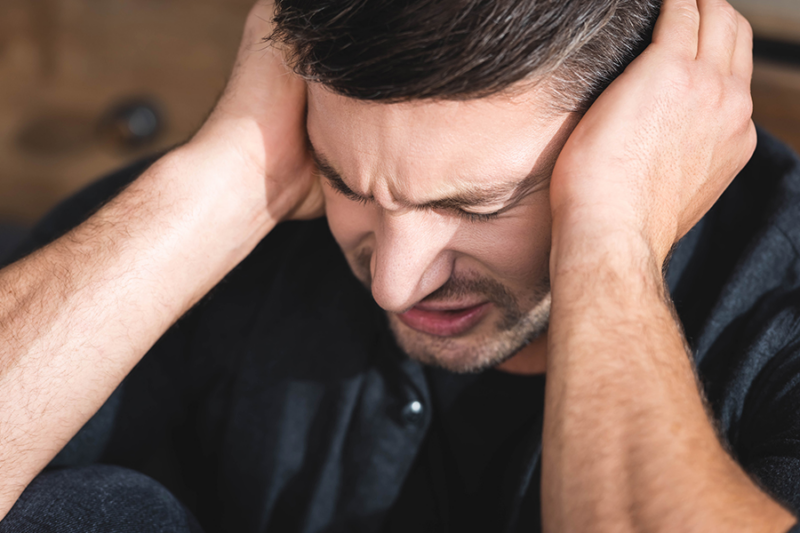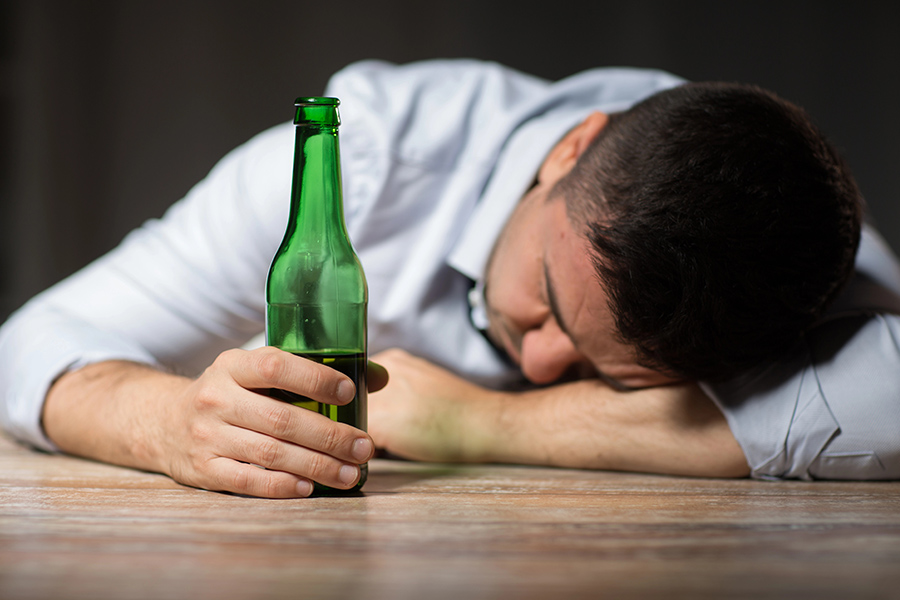Arizona is among the states most affected by alcohol abuse. Data shows at least 16.7% of adults in Arizona binge drink every month, and over 3,600 people die from excessive alcohol intake each year. Putting a complete stop to drinking alcohol is the only way to avoid becoming part of these sad statistics.
However, the harsh symptoms of anxiety from alcohol withdrawal, often resulting from frequent or chronic alcohol use, can complicate efforts to stay sober. Understanding the root of this anxiety is key to overcoming it and successfully navigating alcoholism treatment.

BEGIN YOUR RECOVERY TODAY!
We can help you achieve permanent sobriety that gives you your life back. Call to learn more about our therapy options in Phoenix, AZ.
What Triggers Alcohol Withdrawal?
The term alcohol withdrawal refers to the physical and psychological symptoms experienced when you reduce or completely stop alcohol consumption. In many cases, alcohol withdrawal symptoms occur 6 or more hours after the last high level of alcohol consumed.
You may experience mild withdrawal symptoms or life-threatening symptoms depending on the severity of your alcohol use disorder. Knowing withdrawal symptoms can help you recognize them and get medical care when necessary.
Symptoms of Alcohol Withdrawal
Symptoms of alcohol withdrawal can set in 6 or more hours after your last drink.
Some mild symptoms include:
- Anxiety
- Headaches and confusion
- Restlessness and irritability
- Sweating and vomiting
- Mood swings
- Insomnia
- Sadness
Most people struggling with alcohol addiction will exhibit these symptoms for only a day or two. However, people with more severe withdrawal symptoms can experience:
- Hallucinations
- Alcohol withdrawal seizures
- Delirium tremens
Delirium tremens (DT) is the most severe symptom of alcohol withdrawal. It occurs up to 3 days after the last drink in people with a serious case of alcohol dependence, causing:
- Fever
- Excessive sweating
- High blood pressure
- Disorientation and stupor
- Loss of consciousness
DT can be fatal if not properly treated.
How Alcohol Withdrawal Syndrome May Cause Panic Attacks
Prolonged alcohol use makes your central nervous system (CNS) try to compensate for alcohol’s depressive qualities by stimulating your brain to be more awake and vigilant. When you suddenly stop drinking, the brain remains aroused and vigilant, causing alcohol withdrawal anxiety.
Some people experience mild anxiety during alcohol withdrawal, but those with more severe symptoms such as delirium tremens can experience alcohol withdrawal panic attacks.
Impact of Alcohol on the Brain and Body
The body doesn’t digest alcohol, so when you drink, it passes directly into your bloodstream and travels to organs such as the brain, kidneys, and liver.
Alcohol directly interferes with your CNS, the body part responsible for thinking, feeling, learning, and movement. Alcohol slows down the CNS, reducing communication speed between your nerves and making you feel relaxed and less restricted. This reduced speed makes it difficult for you to think normally. It also interferes with how you see and respond to your environment, which is why drunk people have poor coordination and may forget events that happen when they’re inebriated.
CNS and Hormonal Disruptions
Alcohol’s impact on the CNS disrupts the body’s important hormonal functions. Its effects on growth hormones lead to slow or stagnated bodily and brain development in teenagers.
Alcohol affects how the body processes sugar, leading to conditions such as Type 2 diabetes. The drug also interferes with digestive enzymes and acids, leading to nutritional deficiencies when your stomach can’t properly break down food.
Excessive consumption of alcohol also affects reproductive hormones, causing reduced testosterone in males and early menopause in women.
Sleep Disturbances
When taken in small amounts, alcohol causes a depressive effect that can induce sleepiness. However, studies show excessive drinking can reduce sleep quality by over 39%. People who drink heavily experience frequent sleep disturbances such as insomnia and sleep apnea.
How Is Alcohol Withdrawal Diagnosed?
It’s crucial to get medical care from a medical professional when you experience symptoms such as auditory hallucinations or panic disorder during the detox process.
Healthcare providers use the Clinical Institute Withdrawal Assessment of Alcohol Scale to diagnose alcohol withdrawal syndrome and create a medical detox plan to help you combat withdrawal symptoms.

Getting Treatment at Camelback Recovery
Seeking professional treatment for the signs and symptoms of alcohol withdrawal at Camelback Recovery in Arizona is essential when you want to stop heavy drinking.
Our medical professionals use evidence-based treatment to get you through the worst of the withdrawal stage. Individual and family therapy at Camelback Recovery can help you address the causes of your alcohol addiction. Through group therapy, you’ll find support groups that can offer the help necessary to lower your chances of a relapse.
Contact us online or call (602) 466-9880 to learn about our intensive outpatient program. You can also schedule a tour of our facility at 16th Street, Suite 200, in Phoenix, AZ, to experience our approach to alcohol use disorder treatment firsthand.





